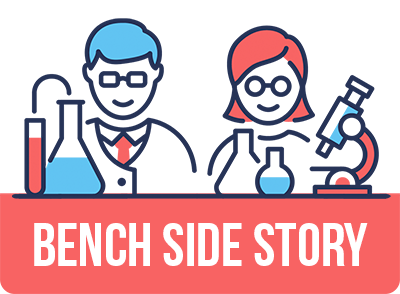RESEARCHER PROFILE
Professor Ernst J. Wolvetang
Australian Institute for Bioengineering and Nanotechnology
The University of Queensland
Australia
Professor Ernst Wolvetang obtained his PhD from the University of Amsterdam, continued his post-doctoral training at the Monash Institute for Reproduction and Development, before joining the Australian Stem Cell Centre.
In 2008 he was recruited to the Australian Institute for Bioengineering and Nanotechnology at The University of Queensland (UQ). He currently heads the Stem Cell Engineering Laboratory and directs the Australian Organoid Facility at UQ as well as the Phenomics Australia NNAT node at UQ.
He is a leader in the derivation, genome editing and disease modelling with human induced pluripotent stem cell and organoids derived from these. Professor Wolvetang is known as our “Mr Organoid” for his trailblazing approach to this exciting field of medical research. He is a pioneer in the field of pluripotent stem cell biology, whose frank and colourful turn of phrase underscores the passion he has for his work.
Professor Wolvetang was among the first to bring the first human embryonic stem cells to Queensland, with his Wolvetang Group at the AIBN now renowned for its work with organoids: growing them, studying them, and using them to try and understand diseases and human development.
Using cutting edge technology, Professor Wolvetang designs and grows organoids both for their own work and for labs across the country, coaxing pluripotent stem cells or tissue samples into 3D structures that mimic the function and architecture of real brains, livers, kidneys, spinal cords, and intestines.
Crucially, Professor Wolvetang says organoids could one day negate the need for animal models, as they can be designed to replicate what is happening inside an individual patient, offering researchers a unique opportunity to study personalised responses to new treatments.
He says this could shave years off the drug development process and – ultimately – the time between diagnosing a problem and delivering the solution.
“Once we demonstrate the power and accuracy of this approach for one genetic disease, it could open the door for testing of other gene therapies for a range of genetic neurological conditions.”, says Professor Wolvetang.
You Might also like
-
Visceral pain and the gut-brain axis
Professor Stuart Brierley is Director of the Visceral Pain Research Group, Director of the Hopwood Centre for Neurobiology, and Theme co-Leader of Lifelong Health at the South Australian Health and Medical Research Institute (SAHMRI).
Prof Brierley is an international expert on the ‘gut-brain axis’ and chronic visceral pain mechanisms. Current investigations are on a individual cell type called the enterochromaffin cell, and it helps signal pain and anxiety from the gastrointestinal tract to the brain.
-
Next Generation Condom Contraception, Dr Simon Cook
Dr. Simon Cook, Co-Founder and Executive Director of Operations at Eudaemon Technologies, has had a diverse and impactful career journey. Beginning with a background in biotechnology from the University of Wollongong, his focus on bacterial pathogenesis during his PhD led him to study Group A Strep and the streptokinase protein.
Subsequently, Dr. Cook ventured into a unique project funded by the Bill and Melinda Gates Foundation, where he became involved in the development of a next-generation condom to address existing issues such as feel, odour, and taste.
-
Dr Jade Murray
DR JADE MURRAY, POSTDOCTORAL RESEARCH FELLOW
TURNER INSTITUTE FOR BRAIN AND MENTAL HEALTH, MONASH UNIVERSITY
VICTORIA, AUSTRALIA



